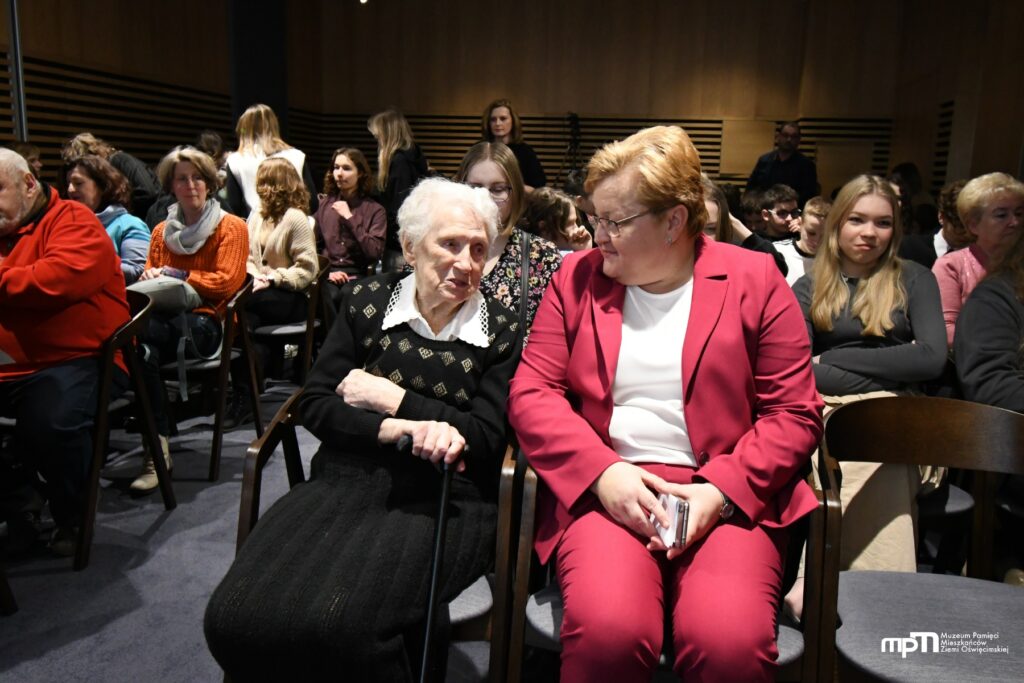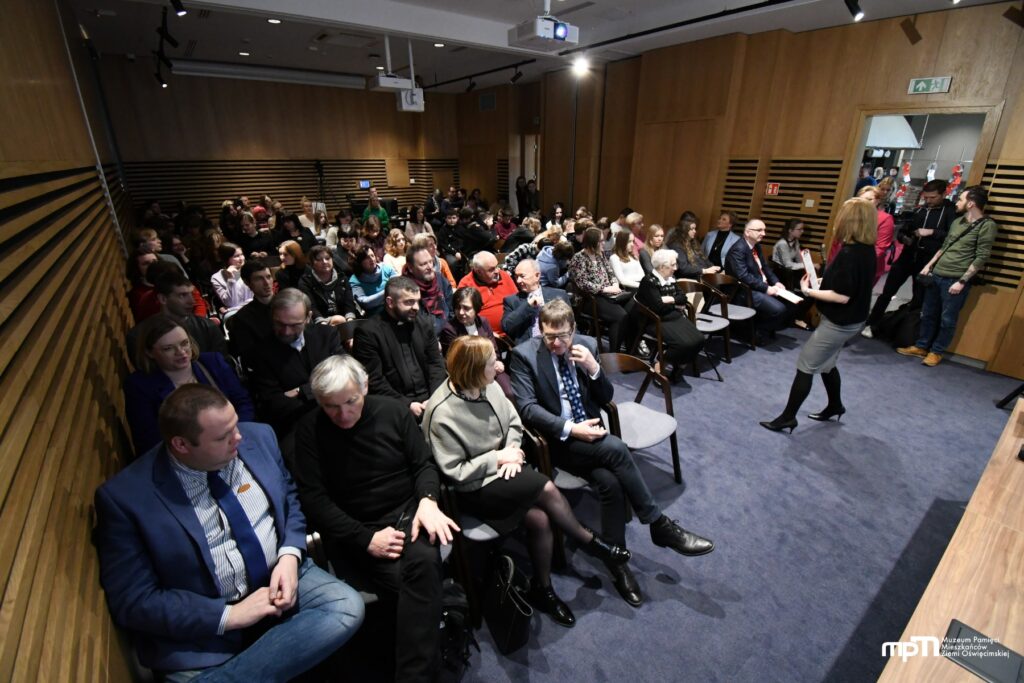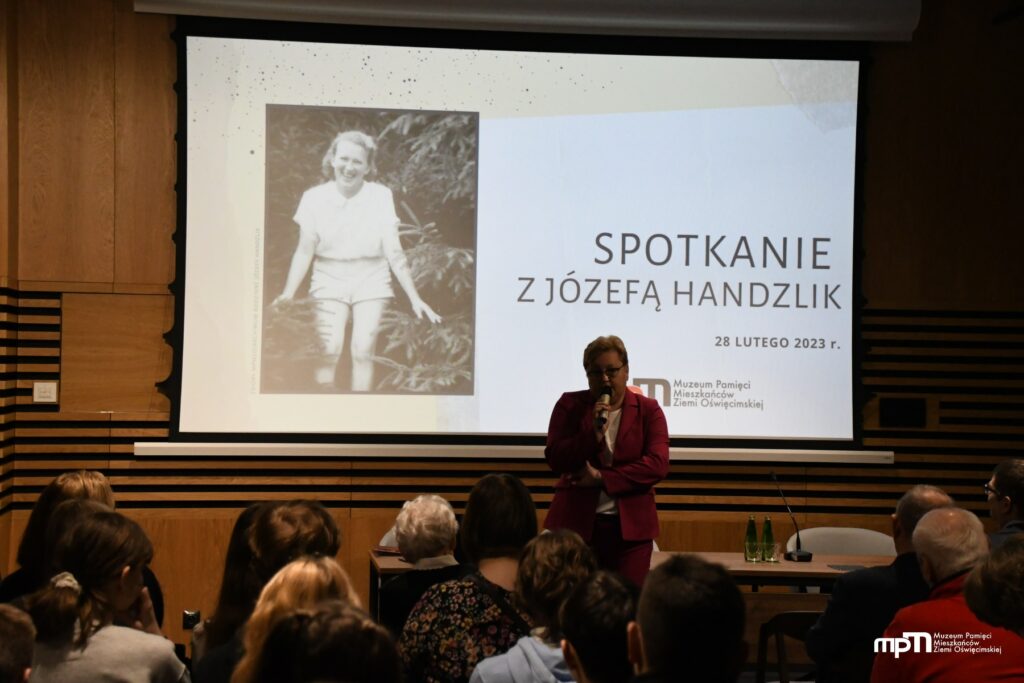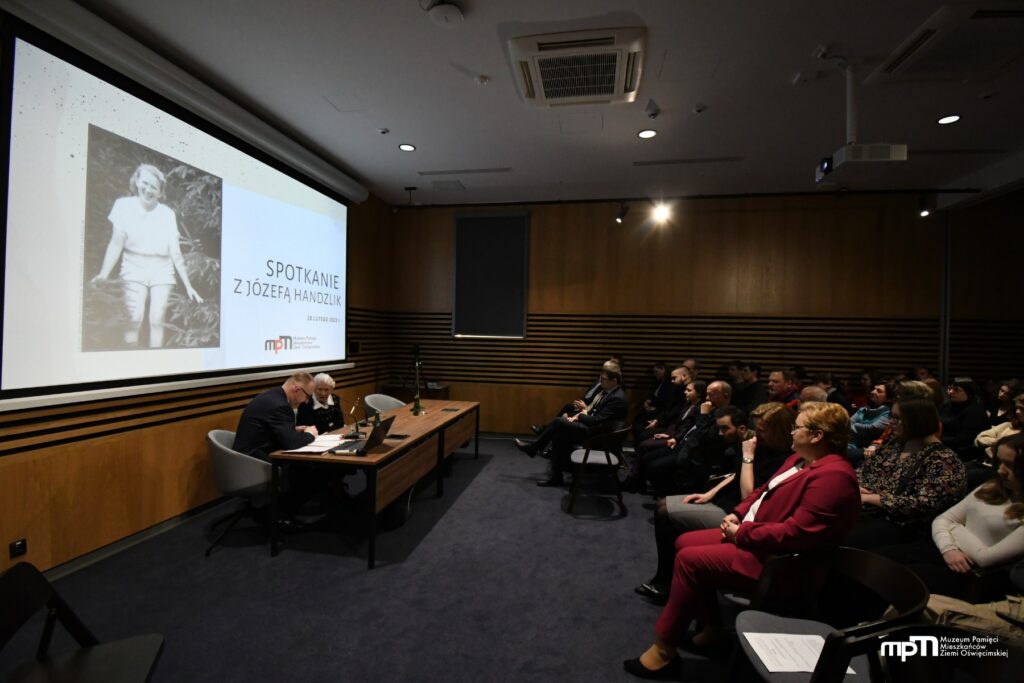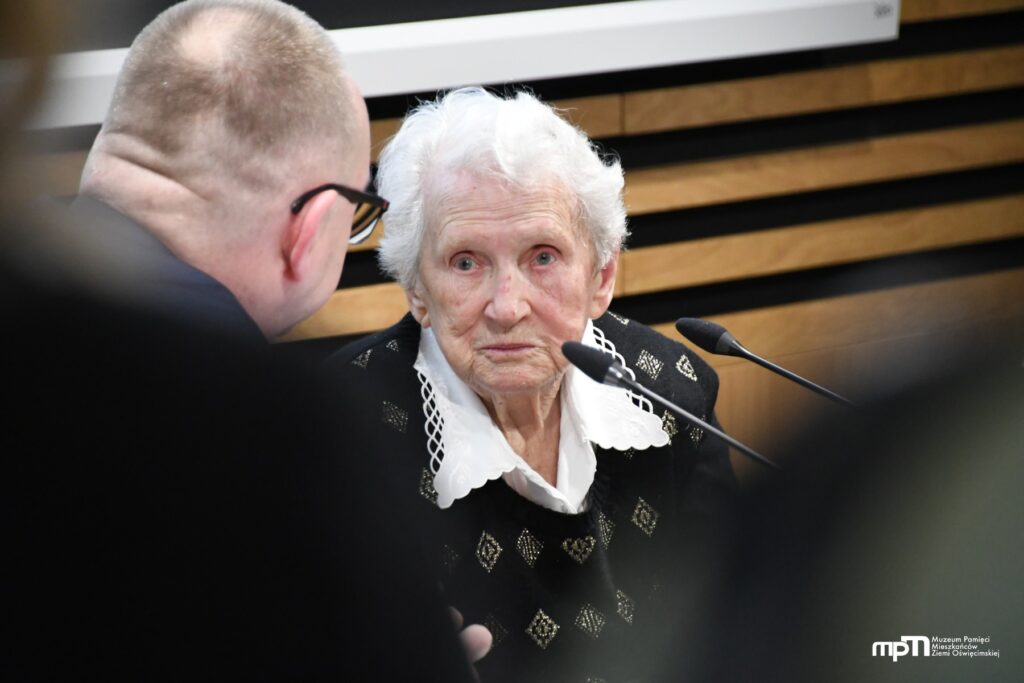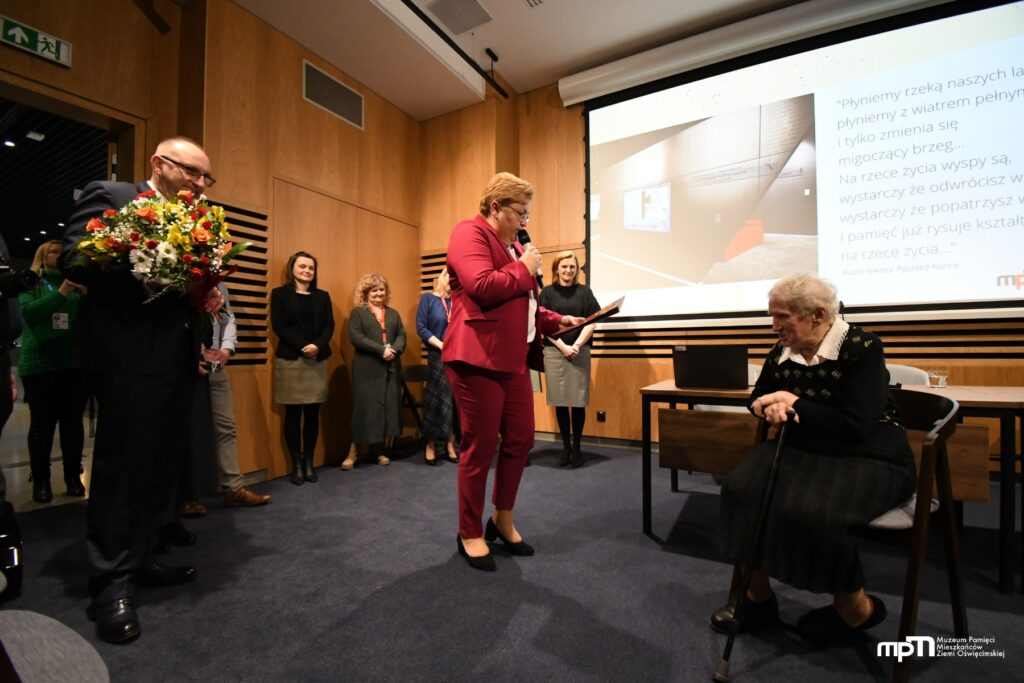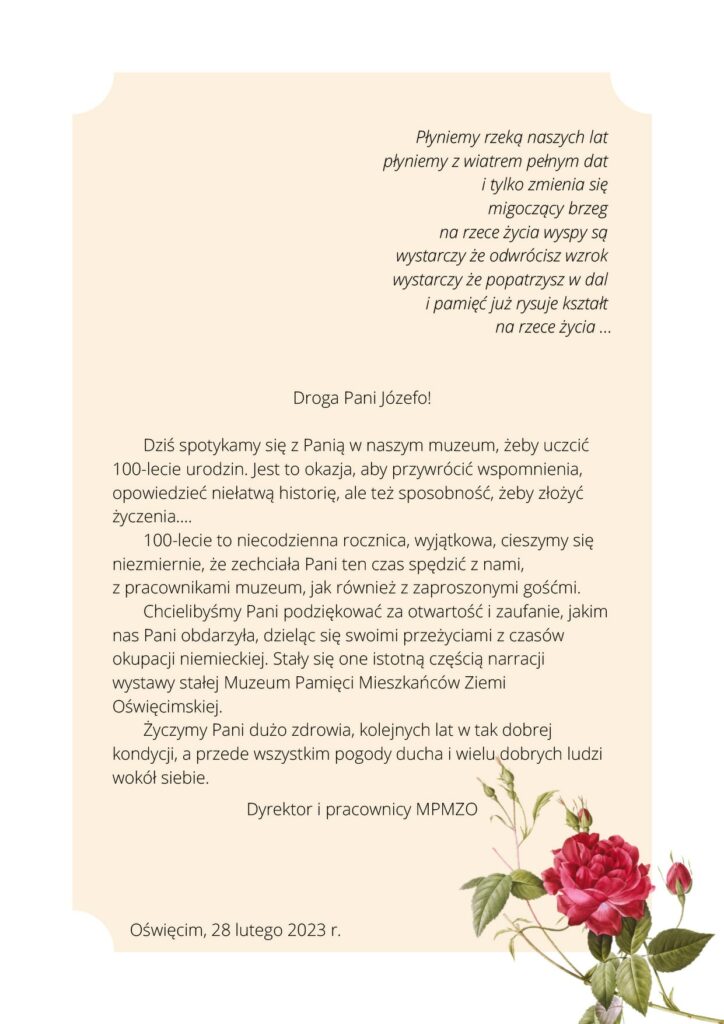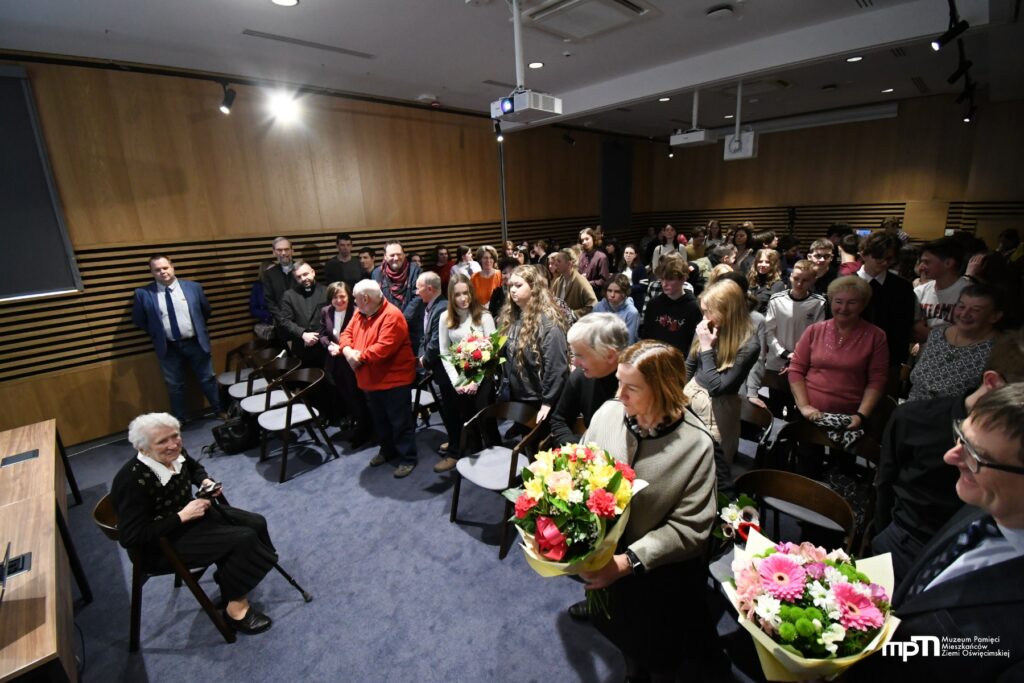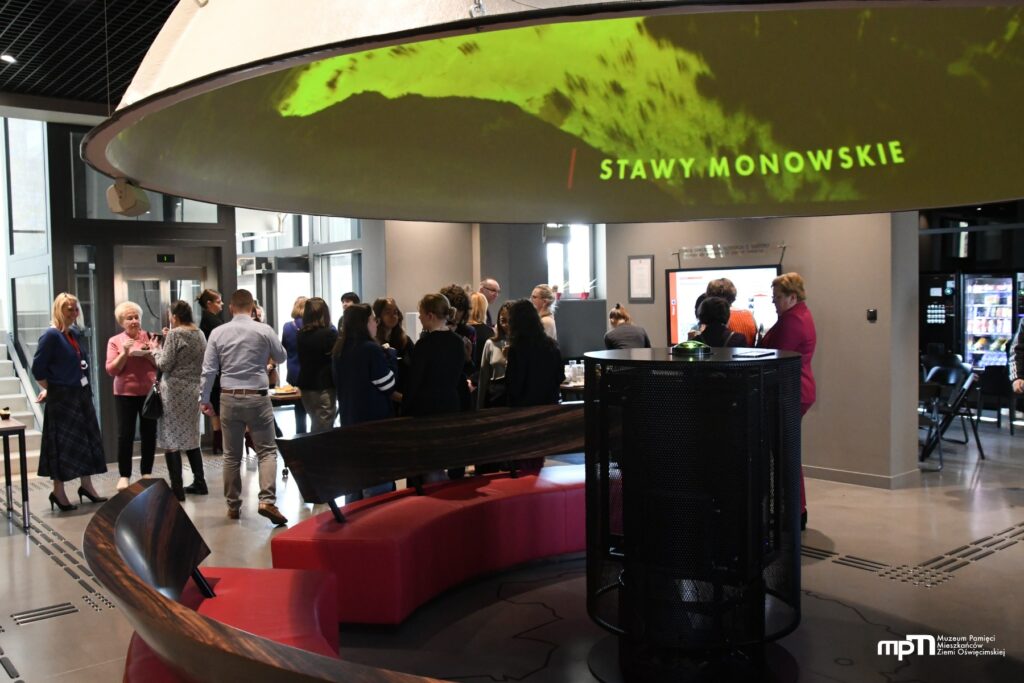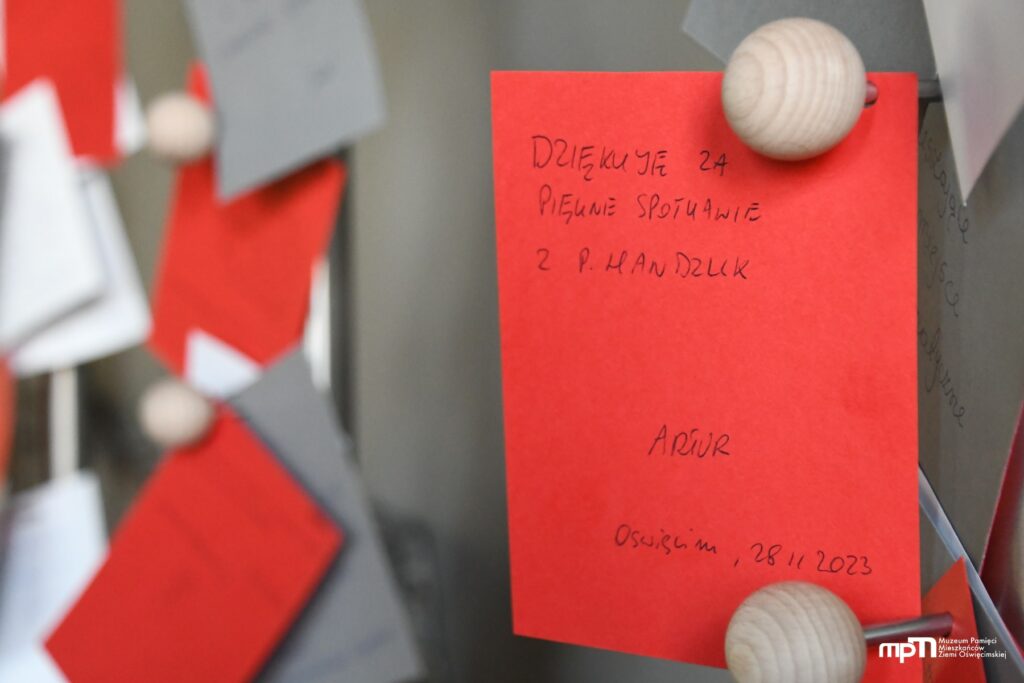“Helena Stupka was always in need of food. She wanted porridge, rice, potatoes the most,” recalled Józefa Handzlik, speaking at the Remembrance Museum about helping Auschwitz prisoners more than 80 years ago. She is one of the witnesses of history telling the story of the pre-war, German occupation and post-war times at the museum’s permanent exhibition.
Initially, the museum intended to organize an intimate meeting with Józefa and celebrate her 100th birthday. The idea evolved and eventually turned into meeting full of participants, with hundreds watching the live broadcast on the Internet.
“Today, in the circumstances in which we live, it seems particularly important that we listen again carefully, very carefully to what is said by witnesses of history, who, precisely at the moment of difficult choices, at the moment of trial, a few decades ago, knew how to preserve their humanity by becoming quiet heroes,” said museum director Dorota Mleczko, welcoming the participants to the meeting.
“When things calmed down a bit, I made an effort to find a job. I know that Germans love to go to work. I went to work in 1941 at Bata’s store, a shoe store,” is how Józefa Handzlik recalled the event that resulted in her helping Auschwitz prisoners on a regular and organized basis. She also said that she felt no anxiety or fear of the Germans.
After some time, Józefa became involved in organized aid. It was particularly important to feed the prisoners. This, among other things, was the work of Helena Stupka, who headed the women’s group in the Auschwitz Political Prisoners’ Aid Committee.
“Stupka was always in need of food. She wanted porridge, rice and potatoes the most,” Józefa Handzlik recounted, also describing in detail how this food was transferred so as not to arouse the suspicion of Germans or informers.
After the talk was over and questions from the floor were answered, it was time for a musical surprise and the opportunity to wish Józefa a happy birthday.
A musical surprise for Mrs. Józefa and the participants of the meeting was prepared by teachers from the K. Szymanowski State Music School of the First Degree in Oświęcim. Miłosz Sadkowski (accordion) and Anna Szczygieł (guitar) performed before the assembled.
Director Dorota Mleczko congratulated Mrs Handzlik on behalf of all staff. School representatives and many other participants in the event presented her with flowers and wished her well.
The report (in Polish) can be viewed online:
The Remembrance Museum would like to thank all participants of the meeting for their participation. Special thanks go to the guardians and students from the following schools: District Complex No. 2 of Sports Championship and Technical Schools in Oświęcim, District Complex No. 9 of M. Dąbrowska Schools in Kęty, District Complex No. 6 of Vocational and General Schools in Brzeszcze, Rev. Stanisław Konarski High School in Oświęcim.
***
On February 16, 1923, Józefa Hatłas, married name Handzlik, was born as the eleventh child of Maria Hatłas (née Irzyk) and Paweł Hatłas. Her mother was a farmer and her father ran a meat business. She graduated from the seven grades of the Common School in Brzezinka. Józefa’s further education was interrupted by severe anaemia, which prevented her from functioning normally for several years.
When the war broke out, Józefa was 16 years old. All the family possessions (house, farm and factory) were taken over by the Germans, and the family was evicted several times – to Monowice, Dwory and Old Ponds. Living conditions were very difficult, so Józefa went to live with one of her sisters in Oświęcim on Jagiellońska Street. Throughout the German occupation, she worked at the BATA shoe store on the main square in Oświęcim. Zofia Szewczyk (married Zużałek) was also employed there – the sister of Major Piotr Szewczyk, a Silent Unseen from Babice, whose story you can read in our permanent exhibition.
During the war, one of Józefa’s friends from the BATA store – Irena Bubec – was imprisoned in Auschwitz for illegally selling shoes to a Jewish family. Józefa did not leave her unprotected, and at all times delivered medicine through civilian laborers working at the camp. In time, other prisoners were helped. The BATA store became a transfer point for medicines for prisoners. Irena Bubec survived the camp thanks to Józefa’s help; after the war the two women met….
Józefa Hatłas also worked with the legendary Oświęcim resident Helena Stupka – a Home Army courier, who engaged with a group of women in helping prisoners, organizing food, passing on secret messages, and assisting in escapes, such as that of August Kowalczyk.
During the occupation, Józefa met her future husband Marian, who was a friend of her brothers and the son of her mother’s friend from Brzezinka. He ran a barber shop during the occupation on Dworcowa Street in Oświęcim. They were married in 1946. They had three sons – Adam, Andrzej and Tadeusz.
In 1953 Józefa began working at the Zielonka restaurant in Oświęcim as a bartender, continuing in this profession for eight years. She later worked at the Oswiecim Chemical Plant until her retirement.
On January 16, 2023, she celebrated her 100th birthday.
